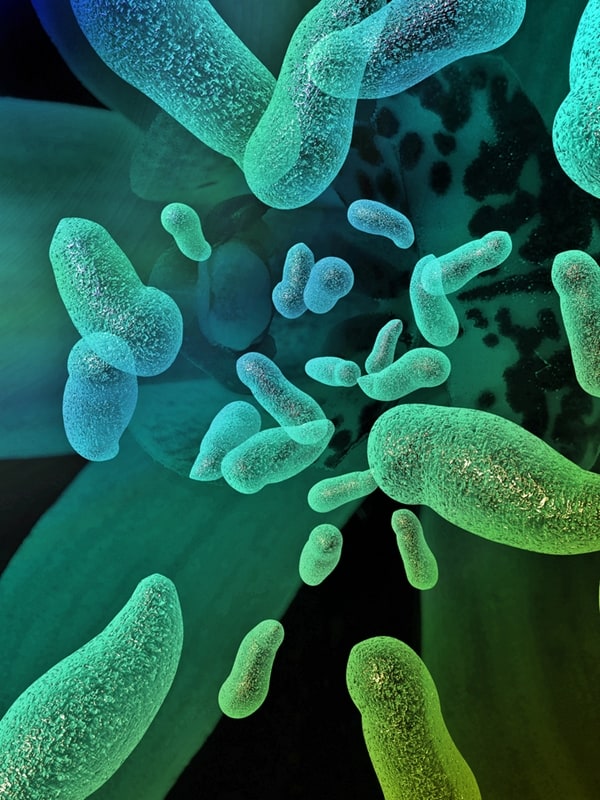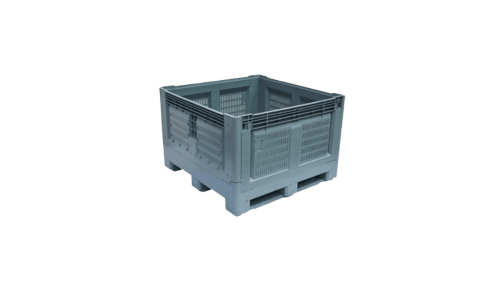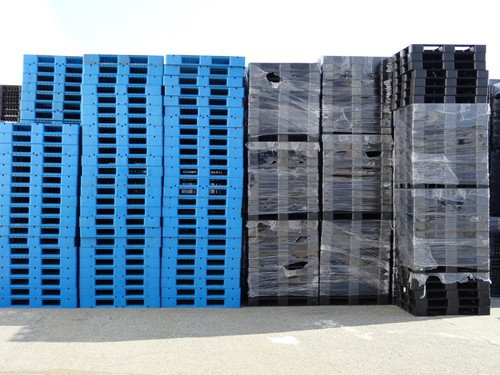Pallets can be used to transport all manner of goods, but are especially important for the shipping of food and beverage products. The requirements of this sector are relatively unique, and many manufacturers therefore demand pallets of the highest quality when it comes to packaging and transportation.
Pallet Contamination More Likely With Wood
The biggest consideration here is pallet contamination, be it from bacteria or physical objects. For example, wood is more porous than plastic, and therefore more likely to absorb harmful pathogens.
In this article we’ll delve into a few reasons why plastic pallets and crates are a superior choice to wood pallets when it comes to the risks of pallet contamination in the food and beverage industry.


Ease of cleaning
When talking about pallets in the context of products for human consumption, hygiene is paramount. This is particularly the case when the same pallets are reused to transport different types of product. If a harmful pathogen is able to spread from one shipment to the next, it becomes that much harder to identify the source of an outbreak and limit its impact on consumers.
The best way to avoid this cross-contamination is by ensuring each pallet is completely sanitised before use, a procedure that is far easier when dealing with plastic. Because wood is much more porous than plastic, the possibility of a wooden pallet absorbing a pathogen like Salmonella or E. coli is higher, and a more thorough clean is needed for sanitation purposes. Typically this necessitates fumigation or heat cleaning, which adds time and expense to shipping operations.
Even then, it’s difficult to guarantee the complete cleanliness of a wooden pallet, which is part of the reason why the food and beverage industry has embraced plastic alternatives so wholeheartedly. Cleaning plastic pallets is easier and more sustainable.


Physical Contaminants
Of course, it’s not just the spread of biological contaminants that food manufacturers need to worry about. The presence of a physical contaminant can be absolutely devastating to a brand’s reputation, resulting in substantial health and legal problems which are difficult to resolve.
With wooden pallets, there are two main contaminants to consider. Firstly, there’s the potential for the wood itself to splinter, especially towards the end of the pallet’s lifetime when it will have been subjected to considerable wear and tear.
There’s also the issue of construction, with wooden pallets usually held together by nails that can become dislodged. With nails and splinters, there’s a chance that food or beverage packaging can become punctured, compromising the integrity of the product within.
Eco Pallets For Pallet Contamination
All plastic pallets are superior to wood for hygiene. And when it comes to the utmost hygiene, our Hygiene Pallet Series are a top choice. As single pieces of moulded plastic, the products we supply at Eco Pallets Australia circumvent this problem of pallet contamination, and ensure there is no chance of an errant object ending up inside whatever is being shipped.
Thanks for your interest in Eco Pallets!
To find out more about why Eco Pallets plastic pallets are the preferred choice in the food industry, contact us today to learn more, get any questions you may have answered and to place an order. You can request a quote here on the site, or get in touch via email or phone and we can help you get the process started.










Comments are closed.